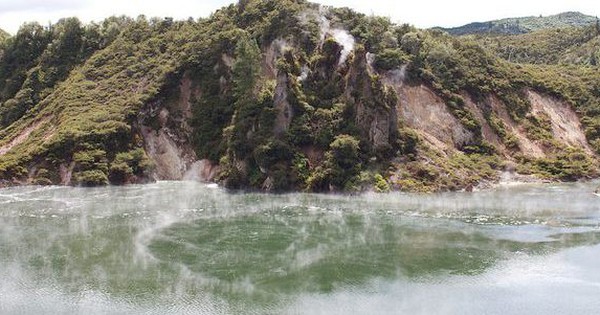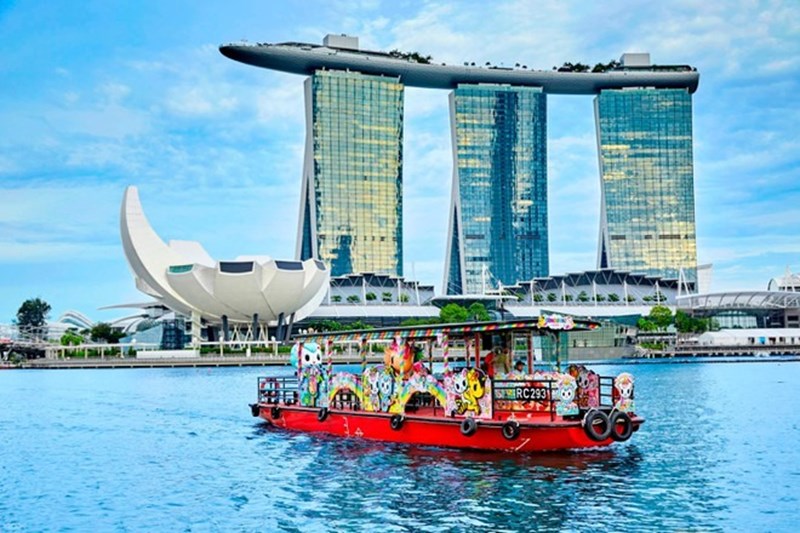Let the world not break

Illustration by Financial Times
That trend is even more worrisome than the immediate big risks like the war in Ukraine or China’s slowing growth that could lead to a global recession.
Not only countries, businesses also need to diversify their import sources, to ensure the supply chain and protect the great benefits of a globally integrated economic system.
Ms. Kristalina Georgieva (IMF director)
Last month, the IMF lowered its forecast for world economic growth this year from 4.4% to 3.6%. Georgieva, a Bulgarian, said of that decision at the WEF: “What worries us even more is not the slowdown in growth, because from 3.6% to a recession there is still room for growth. widening for the world economy, but rather the risk that we are entering an increasingly fragmented world, with trade and monetary blocs ripping apart a world economy that has hitherto been integrated. pitch entry”.
Fragile integration
Indeed, factionalism, whether economic or geopolitical, is a familiar part of modern history. At the beginning of the 20th century, the feuds between the European powers with and without colonies were an important reason that led to World War I.
The “highly integrated” world that Ms. Georgieva said has actually existed since the early 1990s and the World Trade Organization’s 1986-1993 Uruguay round to establish a new economic order. A new economy, associated with free trade, has been established.
Decay isn’t just about economics or politics, either. Even in the infancy of globalization, in 1996, the American scholar Samuel Huntington published a fundamental work, “Clash of Civilizations”.
In it, Huntington divides the world into “civilization” blocks based on culture: Western, Orthodox, Latin American, Muslim, African, Hindu, Buddhist, Chinese and Japanese civilizations. Nearly 25 years after the book came out, Georgieva is echoing a similar concern, as the world is actually dangerously disintegrating along those lines.
“The trend toward fragmentation is very strong,” Ms. Georgieva said during a WEF panel session titled “The Economic Iron Curtain: Scenarios and Implications”.
“I grew up on the other side of the Iron Curtain. I hate it. And I say I’m scared because we could very well be entering such a curtain without even realizing it: after the hot war. maybe another cold war.”
IMF advice
In an article on the IMF’s homepage, Ms. Georgieva warned of the “geo-economic fragmentation” that has left the global economy facing “the biggest test since World War II” with compounding effects due to the war. war in Ukraine, the COVID-19 pandemic, slow growth and inflation at its highest level in decades.
A sharp increase in food and energy prices has left many families miserable, while central banks tightened monetary policy to curb inflation, putting further pressure on developing countries, businesses and families. indebted. Adding to the turbulence of financial markets and the already-permanent threat of climate change, the IMF said the world was facing “the risk of simultaneous catastrophes”.
According to the IMF, the uncertainty in global trade policy has caused the world GDP to lose about 1 percentage point in 2019. Up to now, inflation has also caused about 30 countries to have measures to restrict trade with food. , fuel and some other basic goods.
The IMF warns that further decay will have disastrous consequences, affecting many people in terms of socio-economic aspects, which could lead to a loss of up to 5 percentage points of GDP growth for many countries.
To address those challenges, the IMF calls on governments to continue to reduce trade barriers and diversify imports to improve the resilience of the economy.
“While geostrategic considerations will drive some economic decisions, it does not necessarily lead to the decay of the economy as a whole. Business leaders still have a big role to play in this regard. “, said Mrs. Kristalina Georgieva.
Second, the IMF wants more cooperative efforts to deal with debt, as about 60% of low-income countries are now at risk of debt and need restructuring.
Third, the IMF calls for the modernization of cross-border payments activities to make economic growth more inclusive.
The organization estimates that payment costs account for an average of 6.3% of remittances sent from abroad to a particular country, meaning that $45 billion a year goes to intermediaries rather than households. family. Finally, the IMF called for practical action to close the “gap between ambition and policy” on climate change.
at Blogtuan.info – Source: tuoitre.vn – Read the original article here




